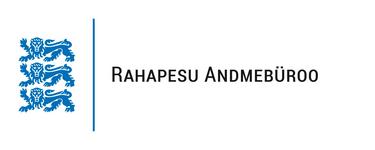Who is the regulator for crypto licenses in Estonia?
Estonia’s approach to regulating digital currencies[1] and blockchain[2] technology has set a benchmark for clarity and efficiency in the cryptocurrency[3] realm. The key regulatory body overseeing the issuance and regulation of crypto licenses in Estonia is the Financial Intelligence Unit (FIU).
Financial Intelligence Unit (FIU)
The Financial Intelligence Unit (FIU) of Estonia plays a pivotal role in the regulation of cryptocurrencies[4] within the jurisdiction. As an autonomous government agency, the FIU is responsible for supervising and enforcing compliance[5] with laws pertaining to anti-money laundering (AML) and combating the financing of terrorism (CFT) within the cryptocurrency sector.
FIU’s Responsibilities
- Issuing licenses to cryptocurrency service providers.
- Monitoring the activities of licensed entities to ensure compliance with AML/CFT regulations.
- Conducting inspections and investigations related to cryptocurrency transactions.
- Providing guidance and regulations for the cryptocurrency industry.
- Collaborating with international regulatory bodies to enhance the global regulatory framework[6] for cryptocurrencies.
The FIU’s comprehensive regulatory framework ensures that Estonia remains a secure and transparent environment for cryptocurrency operations, balancing the need for innovation with the imperative of preventing financial crimes.
Key Facts
- The FIU is the primary regulator for crypto licenses in Estonia.
- It ensures compliance with AML/CFT regulations within the cryptocurrency sector.
- The FIU issues licenses, monitors compliance, and provides industry guidance.
Who is the regulator for crypto licenses in Estonia?
Estonia is known for its progressive and transparent regulatory environment[7], particularly in the digital and fintech sectors. This has positioned Estonia as a favorable jurisdiction for cryptocurrency businesses seeking regulatory clarity[8] and operational stability.
In Estonia, the regulatory body responsible for overseeing the cryptocurrency sector, including the issuance of licenses to crypto businesses, plays a pivotal role in maintaining the integrity and security of the digital finance landscape.”),
The Estonian Financial Intelligence Unit (FIU)The Estonian Financial Intelligence Unit (FIU) is the primary regulator for crypto licenses in Estonia. As an independent unit operating under the jurisdiction of the Estonian Ministry of Finance, the FIU is tasked with combating money laundering[9] and terrorist financing, as well as overseeing the compliance of crypto businesses with the applicable regulatory frameworks.The FIU’s responsibilities include the issuance of operating licenses to cryptocurrency exchange[10] service providers and wallet[11] service providers. It ensures that these entities meet the strict regulatory standards set forth by Estonian law, focusing on Anti-Money Laundering (AML) and Counter-Terrorism Financing (CTF) compliance.
Licensing Process and Compliance Requirements
The FIU’s licensing process for crypto businesses is comprehensive, requiring applicants to demonstrate adherence to AML/CTF regulations, operational security measures, and consumer protection[12] standards. This includes detailed documentation of business operations, ownership structure, and risk assessment procedures.
Crypto businesses must also commit to ongoing compliance, including regular reporting to the FIU and adherence to updated regulations. The FIU’s proactive approach to regulation ensures that Estonia remains a secure and reputable jurisdiction for crypto businesses.”),
Conclusion
The Estonian Financial Intelligence Unit (FIU) plays a crucial role in regulating the cryptocurrency sector in Estonia, ensuring that businesses operating in this space adhere to high standards of compliance and security. The FIU’s rigorous licensing process and oversight mechanisms contribute to Estonia’s reputation as a leading jurisdiction for crypto businesses seeking a regulated environment.Understanding the regulatory landscape[13] and the requirements set by the FIU is essential for any crypto business considering Estonia as its operational base. Compliance with these standards not only facilitates the licensing process but also enhances the credibility and stability of the business in the long term
- Digital currencies — Digital forms of money that exist only in electronic form, not in physical form like coins or notes.
- Blockchain — A decentralized digital ledger recording cryptocurrency transactions across multiple computers.
- Cryptocurrency — Digital or virtual currency secured by cryptography, facilitates secure, anonymous transactions.
- Cryptocurrencies — Digital or virtual currencies that use cryptography for security and operate on a decentralized system, unlike traditional currencies.
- Compliance — The act of adhering to legal standards and regulations established by governmental bodies and regulatory agencies, particularly in the context of financial operations and transactions involving cryptocurrencies.
- Regulatory Framework — A set of regulations and guidelines established by authorities that govern the operation of financial markets and instruments.
- Regulatory Environment — The legal and regulatory framework within which ICOs must operate, varying significantly by country.
- Regulatory Clarity — The evolution of legal frameworks to better accommodate and govern blockchain technology, which is expected to encourage wider adoption and innovation across various sectors.
- Money Laundering — The process of making large amounts of money generated by a criminal activity appear to be legally obtained.
- Exchange — A platform where individuals can buy, sell, or trade cryptocurrencies for other digital currency or traditional currency.
- Wallet — A digital tool that allows users to store and manage their cryptocurrency addresses.
- Consumer Protection — Legal measures and regulations aimed at safeguarding the rights and interests of consumers within the cryptocurrency market, including protection against fraud, misinformation, and market manipulation.
- Regulatory Landscape — The set of laws, guidelines, and policies that govern the use of virtual assets across different regions.

